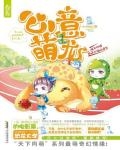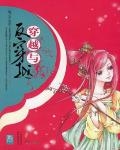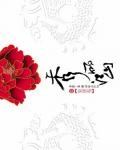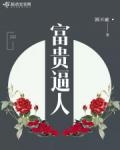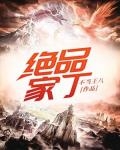Volume 2: The crown and the hat are all over the capital, and the spirit is full of energy and enter the foggy city Chapter 232: The Third Part (End)
Subtitle of this chapter: Squeak-squeak-squeak!
"Modern Chinese literature started with the May Fourth New Culture Movement, which in a sense was a language revolution against classical Chinese and in favor of vernacular Chinese.
This language revolution is inextricably linked to the overall development of modern Chinese literature and has a profound impact on modern literature as a whole.
In the vernacular movement, intellectuals emerged one after another to explore this field. They made unremitting research and exploration in terms of language, rhythm, and expression methods.
As a representative of the New Culture Movement, Yuan Yanshu has an irreplaceable and even unique position in the history of modern Chinese literature and poetry. The unique artistic charm and pioneering creative tendencies in his poems have undoubtedly impressed many readers and can be said to be a rare treasure in modern Chinese literature.
Yuan Yanshu is also a poet with great language talent. He not only writes poems in Chinese, but also uses major languages around the world, such as English, Japanese, French, German, and even Hindi. Therefore, he is also a leader in modern poetry in the 20th century, without a doubt.
His friend T.S. Eliot commented that his talent had nowhere to go.
His friend Xu Zhimo said, I write poetry because of two people, one is Yuan and the other is Lin.
But that "Lin" said that Yuan Yanshu not only taught her how to write poetry, but also how to be a good person...
Yes, she was his first female disciple, and people at that time jokingly called her "Big Sister of the Yuan Clan".
Yuan Yanshu himself once mentioned in a lecture: Poetry is the faint whisper coming from the depths of the poet's heart.
This sentence fully demonstrates Yuan Yanshu's concept of poetics: poetry is the reproduction of true thoughts deep in one's heart; poetry is the product of emotional saturation; the creation of poetry should be free, unconstrained, and unadorned.
Moreover, Yuan Yanshu established his own poetic style very early on, and his creative ideas can be seen in the "Three Old Essays" he first published in 1921.
At that time, he suffered from acute tuberculosis. He was probably the tuberculosis patient with the shortest incubation period in history, and his life was hanging by a thread. In such a desperate situation, he began to write poetry while fighting the disease tenaciously.
What is most surprising is that the first language he used was not his native Chinese or English, which he had already mastered, but the Japanese he had just learned. This was the song "Not Afraid of Wind and Rain" which later became a hit all over Japan.
If I were to describe Yuan Yanshu’s “Not Fearful of Wind and Rain” in one word, it would be - quality.
Perhaps because he was a beginner, the words of the whole poem are as simple as a farmer's self-narration in the countryside, yet have the power to touch people's hearts.
No wonder Mori Ogai, one of the three great Japanese literary masters, particularly liked this poem and praised Yuan Yanshu as "the Bai Juyi of the 20th century."
When he learned that Mr. Yuan had returned to Shanghai at the end of 1921, he was overjoyed and planned to visit him in China. Unfortunately, he died of illness in early 1922..
Later, when Yuan Yanshu visited Japan, she went to Mori Ogai's grave and burned the book "Not Fearful of Wind and Rain" she wrote for him.
The saying "poetry is not about words" refers to this kind of poetry.
If we use one word to summarize his "I Love This Land", it is - ambition.
One can feel the patriotism of the author and the sadness of his unfulfilled ambitions at the time from the first reading of this poem. No wonder Mr. Lu Xun, who is as famous as Mr. Hongjian, particularly likes this poem and once said, "The literati of our generation are unfortunate because of Hongjian."
When Lu Xun passed away in 1936, Yuan Yanshu was not in China. When he learned the sad news, he burned his own copy of "I Love This Land" for him.
The saying "poetry is the expression of one's heart" refers to this kind of poetry.
To describe his "I Died of Handsomeness" in one word, it is - knowledge.
In fact, this poem is the most typical poetry work of intellectuals.
Unlike "Not Fearful of Wind and Rain", this poem requires a certain level of reading ability to appreciate its beauty; also unlike "I Love This Land", this poem requires careful consideration to understand what the author is saying.
"I Died of Handsomeness" uses a concise format and humorous language to expound rich thoughts and profound philosophy.
If you can understand this poem, you will know that the author is a great poet with a great soul.
As the famous British poet William Butler Yeats said, Yuan Yanshu is a lucky man who is gifted by God with an incomparable sensitive heart and a finishing touch.
When Yeats died in 1939, Yuan Yanshu was unable to go to London to attend his funeral because she was listed as an unwelcome person by the British government. She had to burn her own copy of "I Die Handsome" for him.
The so-called natural talent for poetry refers to this kind of poetry.
It has to be said that Yuan Yanshu is a very humorous writer. "I Died of Handsomeness" was translated into Chinese by himself and the title is "So Handsome".
There is another anecdote about this poem. After it was published, some people questioned whether Yuan Yanshu plagiarized Emily Dickinson's "I Died of Beauty". Except for changing "Beauty" to "Handsome", the two poems are exactly the same.
But Yuan Yanshu swore that he had never seen the original work of Ms. Dickinson. He said that when he was seriously ill and unconscious, he always heard a lady reciting this poem in his ear, so he wrote it down.
This became a famous paranormal event. Some paranormal experts claimed that it was the poet soul possessed by Yuan Yanshu that attracted the poet soul of Ms. Dickinson.
Other writers at the time also defended Yuan Yanshu, saying that a talented poet like him did not need to plagiarize others. It is possible that he accidentally heard someone reading this poem and then remembered it in his mind.
Later, in order to express her apology, Yuan Yanshu funded the publication of Dickinson's complete poems and gave all the royalties to Dickinson's family.
However, it should be pointed out that Yuan Yanshu did not attach much importance to pure poetry creation. He preferred to write songs. He once said that poetry that cannot be sung is not a "song".
On this point, he had a lot in common with his friend Xu Zhimo . The Crescent Moon School to which the latter belonged was dissatisfied with the style of the "free poets" after the May Fourth Movement who neglected the art of poetry and advocated new metrical poetry.
But in the spring of 1927, when Xu Zhimo invited him to join the Crescent Moon School in Shanghai, he decisively refused..
The reason for his refusal was that he had many funeral matters to attend to soon and had no time to write poetry.
As for whose funeral he was going to hold, there are detailed records in history.
Later, when someone asked him about poetry schools, Yuan Yanshu said that if he really belonged to a school, it would be the Old School.
Because one of the pen names he often used when publishing his poems was - The Old One..."
——Excerpt from "On the Beauty of Yuan Yanshu's Poetry and Its Influence on the Vernacular Movement"

